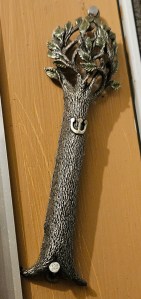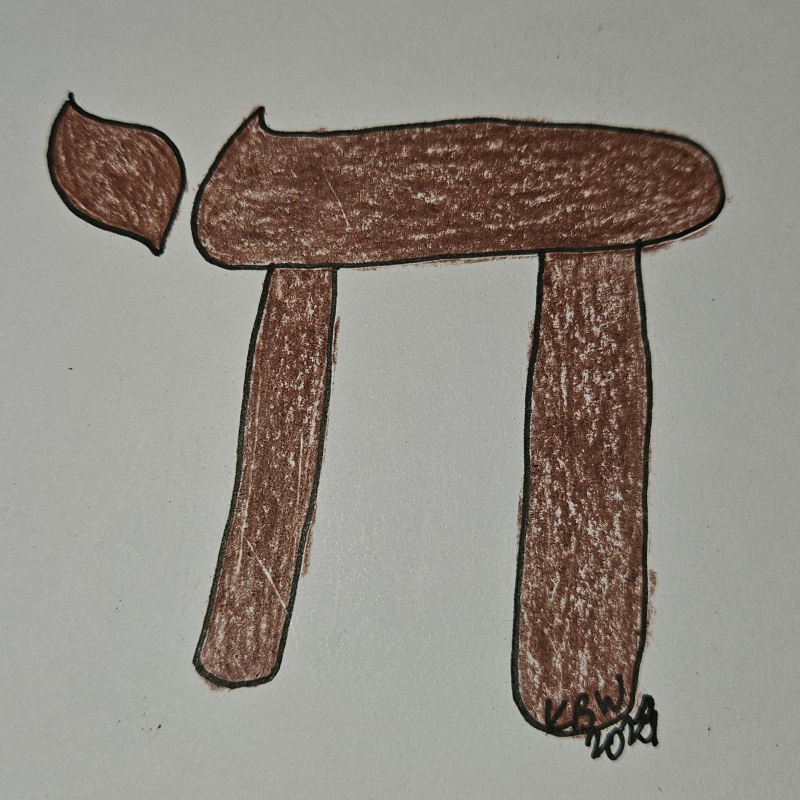I’ve been thinking a lot about my observances and views especially since coming across the thoughts of Robin Wall Kimmerer in reconciling her own feelings on her family’s rituals, but also since the terror attacks in Israel on October 7th and the rampant antisemitism since then. I wonder if I should be doing more as a Jewish person. I wonder (for the first time) if I should have converted – it’s not that I don’t believe; I do believe wholeheartedly, but am I betraying the Jewish people? Am I still Jewish to others? *I* know I am still Jewish. I just feel on the outside. I have always felt somewhat on the outside. I’m more religious than some; I’m less than most. Does what I do count? Who decides that?
I have many thoughts, but they are not forming cohesively and rationally. They come in screams and anger and heartbreak. And reflection.
This series began with reading Robin Wall Kimmerer’s Braiding Sweetgrass. So much of it resonated with me despite the difference in our backgrounds. Kimmerer is Native American and approaches everything from that perspective and family history. When she talked about her father’s morning prayer and her subsequent thoughts on whether it was “good enough” [my words, not hers], and then her reconciliation of that, it made me really think on my own rituals, both in childhood and adulthood, single and married and parenthood.
Kimmerer describes her father’s morning prayer, thanking the Creator, his pouring out the first cup of coffee in the open air in thanksgiving for all they’d been given and experienced.
She writes: “It was a secondhand ceremony. Somewhere there were people who knew the right ceremony, who knew the lost language and spoke the true names, including my own.”
“Ours was a solitary ceremony.”
“It was in the presence of the ancient ceremonies that I understood that our coffee offering was not secondhand, it was ours.” [Emphasis mine.]
It was in reading this that I began to think on my own rituals and ceremonies in my Jewish upbringing and life. Despite receiving the sacraments of the Catholic Church ten years ago, I remain Jewish. It is who I’ve always been, and who I will always be. Each generation loses something from the last one. My parents did things differently than their parents, and I do things differently than my own. I often felt that I didn’t belong in either group – not Christian, but not Jewish enough. I felt that I wasn’t doing things the right way, that I was taking half-measures, that my non-prayer of conversing with G-d was not enough, or wrong. I didn’t want to insert myself into Jewish spaces because I wasn’t Jewish enough and didn’t understand everything. Even before my Catholic conversion.
In reading Kimmerer’s first quotation, that was what I felt. We were somehow not quite doing it the proper way, the right way. Especially after we moved to Long Island, to a more mixed neighborhood. But the reality was that it wasn’t more mixed; it was less Jewish. There was no courtyard where everyone knew everyone else. These were streets in rows, and you might have known the people directly next to you or behind you, but not the people two streets away. When we moved, we were sent to a more religious Hebrew School. Four times a week. It wasn’t what I was used to. I was used to singing and hearing stories of our traditions and celebrating them. It was too much, and I was happy and relieved when we returned to our Workman Circle roots with my old teacher. I was at home again.
The second quotation summed it up – we did this, and it fit nowhere outside of our family. We never had a tree, but my mother would give us gifts from Santa, but on the tags, she always wrote Santee. It’s funny that he had the same handwriting as she did. She wanted us to fit in. We were off from school at Christmas, and not Chanukah. We were off for Passover, but it was called Easter break. I think she always wanted to fit in, but she still asked if my friends at college were Jewish (they weren’t), if the boy I was dating was Jewish (he wasn’t, and I married an Irish Catholic), and other questions. I felt (and feel) being Jewish in my bones. It is a history that goes back thousands of years. I feel those years. I feel that heritage. I feel that inheritance.
And it was the third set of Kimmerer’s words when I stopped reading and really began to think of my own experiences with my “watered-down” version of rituals. It wasn’t secondhand. *I* wasn’t secondhand. Our rituals were our own. And they were just as valuable as any other family. I hope my kids remember that. I hope they remember their Jewish heritage. Their formal religion is Jewish. I converted; they didn’t.
When they were born, there was no question that they would have their birthing and welcoming rituals. The boys had their bris; my daughter had a naming. We celebrated. My daughter was given a Siddur. She still has it and thinks on it warmly. My mother died when my boys were young, so I had no one to guide me towards Bar Mitzvahs, and so we didn’t have them. We continued to be Jewish though. We continued to observe and celebrate the holidays as the year went by. We had our traditions that we followed, some of which they looked forward to.
I never wondered if I could do both sets of ceremonies. I knew I could. Would I stop fasting on Yom Kippur? No, why would I? Eating bread during Passover? No more than the usual exceptions I’ve made for circumstance at other people’s houses.
What I do matters. It matters to me. And it matters to G-d. I know I’ll continue to worry about it, but now in the back of my mind, I can tell myself that I’m doing it right, and I’m doing it right for me; for us.
After October 7, I’m more Jewish. We celebrated Chanukah this year with lights and cookies, latkes, and even prayers. Baruch atah Adonai elohainu melach ha-olam…these words are carved on my heart. Just like Der kinder layen in shul and giving my kids חי on their 18th birthdays.
As a Catholic convert, I am in church often. I go to Scripture Studies and retreats. I also observe/celebrate the Jewish holidays. If there’s a conflict, I try to balance out the importance – which one is more important religiously? How can I observe both and keep the respect for both without diluting the meanings? I just do. It’s not secondhand; it’s mine.

(c)2024

(c)2024

(c)2024
There will be a fourth part to this series in the coming days highlighting my duality as a Jewish and Catholic person.

